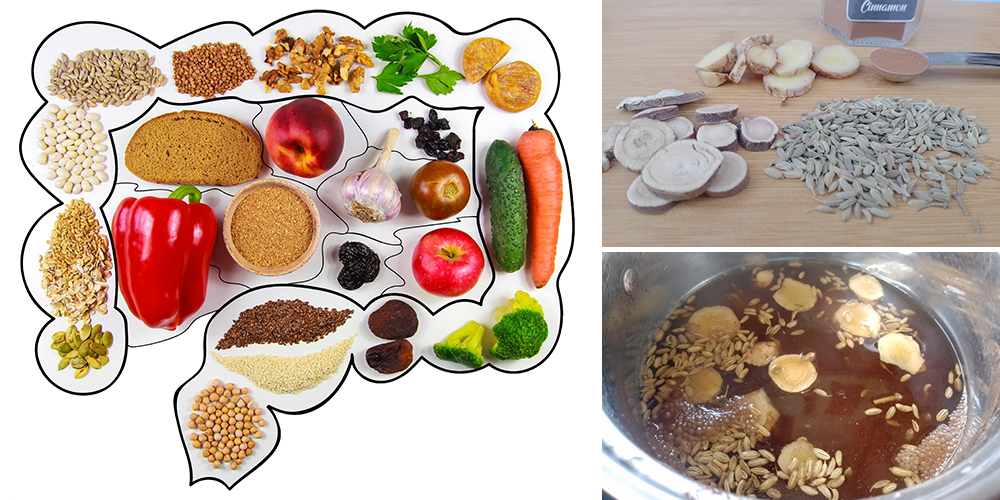
Herbal Glossary: Remedies for Your Gut
The digestive system is a complex system to understand. It is not only responsible for breaking down food but may also influence our mood and the way we think. Gut remedies may fix your overall well-being.
You read that right! Your gut can impact your thinking and feeling. It consists of what scientists call the mini brain that lines the digestive tract from the esophagus to the rectum. This mini-brain is scientifically called the enteric nervous system, or ENS, which is made up of more than a hundred million nerve cells.
ENS controls the swallowing, secretion of digestive enzymes and proper food digestion and elimination. It also communicates with the central nervous system which triggers the mood and affects the digestive function.
Factors that Affect the Gut Health
The gut or gastrointestinal system includes the stomach, intestine and colon. It is where the digestion, absorption and excretion of food happens. It is also the foundation of immunity, metabolism and homeostasis.
Inside the gut are the gut microbiota composed of bacteria, yeasts, archaea and viruses that form a commensal relationship with the body.
When altered, the microbiota may also cause the development of many diseases and compromise immune resistance.
The imbalance of gut microbiota can be caused by different factors such as:
 Poor nutrition
Poor nutrition- Stress and lack of sleep
- Smoking and alcohol
- Lack of physical activity
- Taking antacids and antibiotics
⇒ How To Feed Your Gut With “Good” Bacteria (Probiotics)
Herbal Gut Remedies
Promoting overall health and wellness starts with good gut health. You can improve it through a healthy lifestyle and diet changes. High fiber and fermented foods are a great part of a healthy plate. Some of these herbs also hold promising benefits as gut remedies in the promotion of better tummy health.
Anise
The pods of the anise (Pimpinella anisum) may hold promising results in the treatment of depression in patients with IBS, according to studies. It may have a therapeutic effect on IBS although future trials are recommended to validate the evidence.
Asafoetida
Asafoetida (Ferula asafoetida) is a gum resin extracted from the herb Ferula. It is nicknamed the devil’s dung because of its pungent smell. However, it makes an excellent treatment for various digestive issues with its digestive, laxative, carminative and anthelmintic properties.
Barberry
Barberry (Berberis vulgaris) contains berberine, an alkaloid compound that can inhibit the growth of harmful organisms. It helps maintain the balance of the gut microbiome to promote good gut health and boost the immune response.
Boswellia
Boswellia (Boswellia serrata) possesses a strong anti-inflammatory property to relieve pain and digestion-related inflammation. It may protect the pancreas to stimulate the production of digestive enzymes needed to support gut health.
Caraway
Caraway (Carum carvi) is identified as wild cumin, but it is a completely different spice. Like cumin, caraway is also a gut-supportive herb that can ease indigestion, flatulence acid reflux and intestinal parasites.
Cayenne Pepper
The capsaicin in cayenne (Capsicum annuum) is an important phytochemical that has a modulatory effect on the gut. It can help restore the microbiota composition and suppress inflammation such as in inflammatory bowel disease (IBD).
Chamomile
Chamomile (Matricaria chamomilla) is a sleep-inducing herb. However, it’s still part of the gut remedies because it is also capable of taming a queasy stomach and healing the gut. A cup of chamomile tea can reduce muscle spasms, treat infection and calm the ENS for better digestive functioning.
Your body regenerates during sleep. That’s why everyone recommends a minimum amount of sleep every day for better functioning. You can also delay cognitive decline if you sleep more and better. Nicole’s Apothecary has more information about how chamomile influences sleep.
⇒ Start Growing Your Own Chamomile – The Natural Antibiotic (Video)
Cinnamon
Cinnamon, particularly Ceylon cinnamon, is an anti-inflammatory spice that may help ease colitis and other gut inflammation. The extract supports the balance of the gut microbiota by decreasing the number of disease-promoting bacteria.
Coriander
Coriander seeds and essential oils can stimulate natural bowel movement and are good for easing constipation. It also has a stimulating effect that can regulate the secretion of digestive enzymes and balance the hormones to improve nervous functions.
Cumin
Cumin (Cuminum cyminum) is one of the most gut-friendly spices. It is used for treating bloating and gas in children. It may also help activate the pancreatic enzymes that aid in proper digestion.
Dandelion
Dandelion (Taraxacum officinale) is a fiber-rich herb that is very useful in intestinal and colon cleansing. It also boosts the function of the pancreas, liver and digestive system for better digestion and nutrient absorption.
Fennel
Fennel (Foeniculum vulgare) is a popular carminative that is used in expelling gas to ease bloating and dyspepsia. It contains compounds that may help remove carcinogens from the GI tract and prevent colon cancer.
Fenugreek
Fenugreek (Trigonella foenumgraecum) is a high-fiber and mucilaginous plant that may help in improving gut health and bowel regularity. Taking fenugreek tea or its tincture helps calm the stomach muscles, regulate the stomach acid and improve digestion.
Fenugreek is also known for its potent heart health support. Combined with other potent herbal remedies, it makes a great tincture to regulate blood glucose, lower LDL cholesterol and regulate blood pressure. I actually got this as a gift for my nephew last Christmas. It works amazing!
Gentian
Gentian (Gentiana lutea) is a bitter herb that is used for stimulating the secretion of saliva, digestive enzymes, bile juice and stomach acid. The process can effectively improve the digestive system’s functions and prevent gastrointestinal diseases.
Ginger
This one (Zingiber officinale) is undoubtedly a powerful spice that has been used for a wide range of digestive problems since ancient times. Ginger rhizome is a fast-acting decoction against stomach problems stemming from indigestion, acid reflux, nausea, and many others.
Marshmallow Root
Marshmallow (Althaea officinalis) is also a mucilaginous herb that can help repair the damaged gut lining and prevent inflammation. This root tea works as an antacid that is useful in easing acid reflux.
This remedy is so potent that the most popular tincture in Nicole’s Apothecary is based on it. It’s created specifically to target your gut immediately and rejuvenate it, restoring healthy gut function. You can check it out here!
Peppermint
It can be used as a fresh or dried herbal tea to help strengthen the digestive system. Peppermint (Mentha piperita) is antispasmodic. It can relax the muscles of the bowel wall. It is also a relaxant to relieve anxiety and depression that affect gut health.
Psyllium husk
Psyllium husk is derived from the seeds of Plantago ovata or blond plantain. It is used as an ingredient in many food supplements and laxative products. Psyllium husk is a bulking agent for treating bowel and intestinal problems and preventing hemorrhoids.
A doctor’s advice is recommended before taking psyllium husk as it may interact with medications or cause digestive discomfort for first-time users. It should also be taken with plenty of water to prevent it from swelling and causing intestinal blockage.
Slippery Elm
Slippery elm (Ulmus rubra) is an important herb in supporting the digestive system. It contains mucilage that coats the intestinal lining and increases the mucus secretion to aid in proper digestion. Slippery elm is an excellent herb in treating ulcerative colitis, Crohn’s disease and IBS.
This is one of the gut remedies that are harder to get, but if you do, it’s going to help a lot! If you can’t put your hand on it with ease, you can check out the Balanced Gut Blend Tincture that contains it!
Turmeric
Turmeric (Curcuma longa) is also a potent anti-inflammatory spice that may help strengthen the integrity of the intestinal lining. It balances the gut microbiome and reduces the immune response that triggers inflammation.
Licorice root
Licorice root (Glycyrrhiza glabra) has long been revered in traditional medicine for its healing properties, particularly for gut health. It contains glycyrrhizin, a compound known for its anti-inflammatory and immune-boosting effects. Licorice root can soothe the gastrointestinal tract, making it a valuable remedy for conditions such as gastritis, ulcers, and acid reflux. Additionally, it may help restore the balance of gut bacteria, promoting overall digestive health. That’s why this is one of the best gut remedies you can get. As with any herbal remedy, it is important to consult with a healthcare provider before use, especially for those with high blood pressure or other health concerns.
Digestive Support Tea For Your Gut
If you are having tummy problems or want to improve your digestion, here is an easy brew of powerful digestive herbs to try.
 Ingredients
Ingredients
- 2 cups water
- 1-inch ginger root, chopped unpeeled
- 1 tsp fennel seeds
- ½ tsp cinnamon
- 2 to 3 thin slices of licorice root
- Gut Health Tincture (optional)
Steps
- Bring 2 cups of water to a boil.

- Add the chopped ginger, fennel, cinnamon and licorice root. Reduce to low and simmer for 10-15 minutes.

- Strain and pour into tea cups. Add a few drops of the gut-soothing tincture as recommended on the label.

To use: Take 6 oz (or about one tea cup) of the tea with or after meals. This tea can boost the function of the digestive system and prevent bloating and other related stomach issues. There is no established dosage to take but always consider drinking the tea in moderation and at a reasonable period to avoid potential side effects.

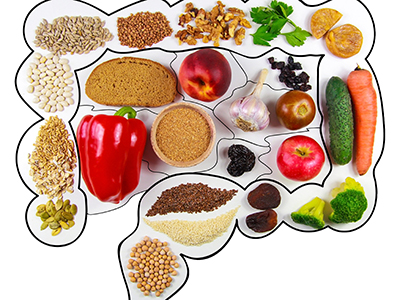 Poor nutrition
Poor nutrition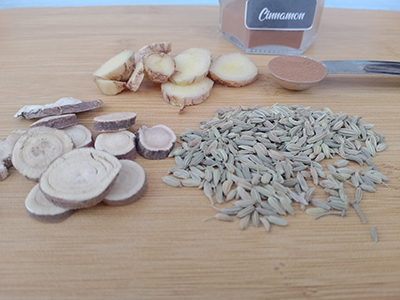 Ingredients
Ingredients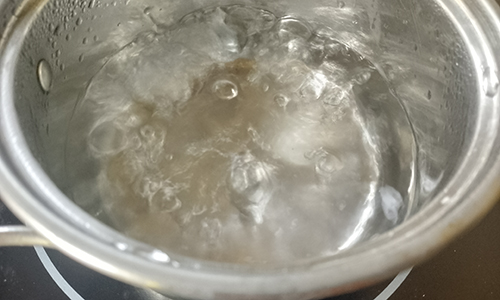
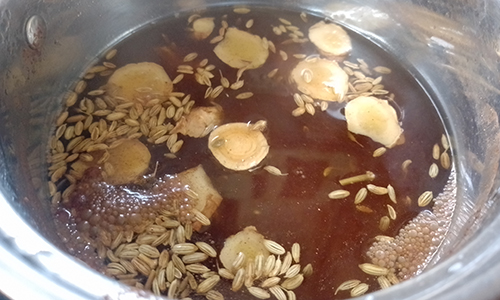
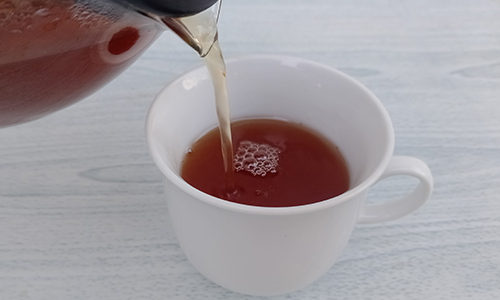
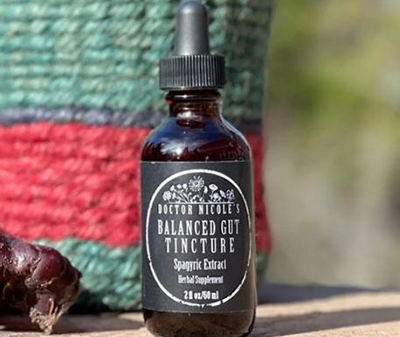

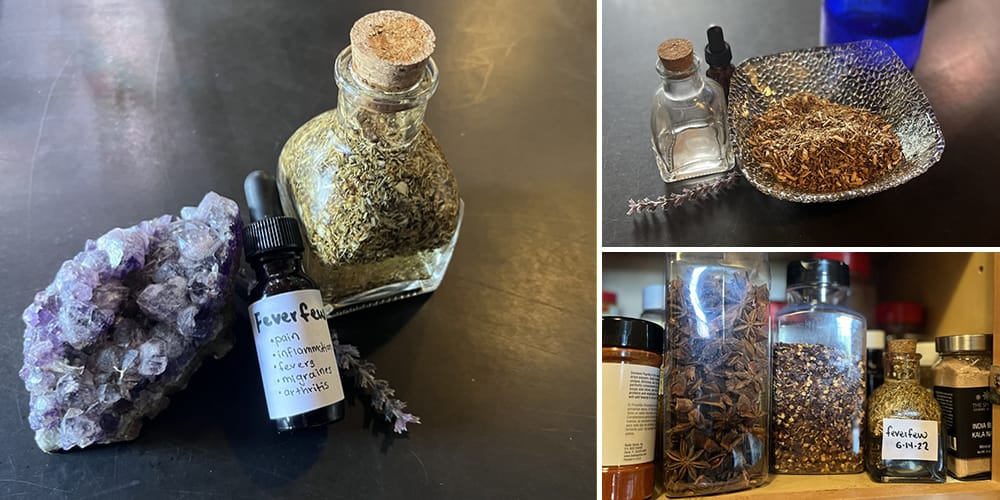

Is this okay to take when you have CKD